Iranzo, Rittler and Kesting create cocoon-like "cloud" installation
The permeable fabric skin of this inhabitable installation by graduates from Germany's Burg Giebichenstein University of Art and Design allowed moisture into the space, designed to make visitors feel like they were inside a cloud (+ slideshow).
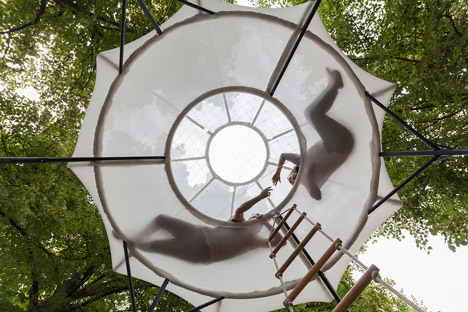
Jordi Iranzo, Stefanie Rittler and Nadine Kesting designed the structure, named Cumulus, A Space For Calm, as a graduation project for the Burg Giebichenstein University of Art and Design in Halle, Germany.
Raised above the ground on metal legs, the translucent white structure cocooned visitors at the same level as the branches of nearby trees in a wooded area of the university campus. The structure, intended to resemble a rain cloud, was covered in a stretchy perforated material that exposed inhabitants to precipitation rather than protecting them from it.
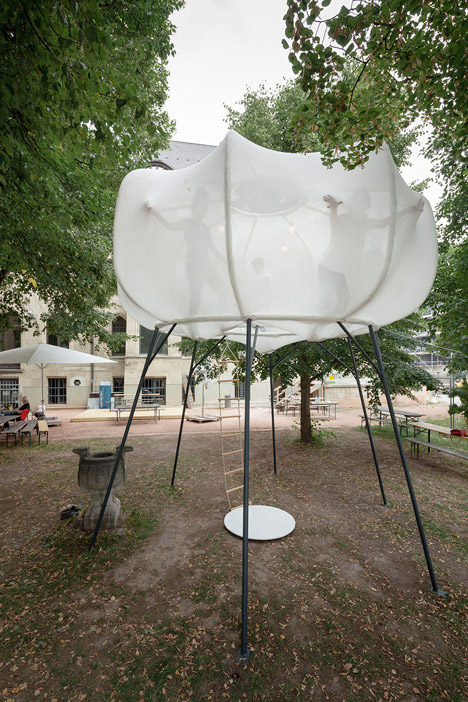
"The brief was to make an installation or house taking the inspiration of parasites," Iranzo told Dezeen. "Also the project had the aim of achieving calm."
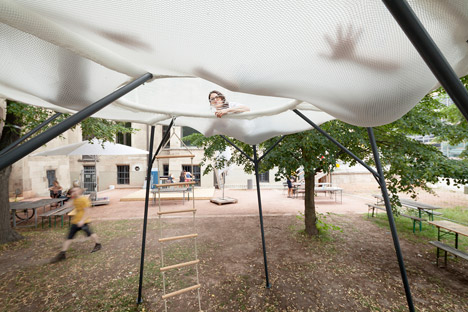
"So we took the idea that a cloud is a parasite of the sky. We thought that when you see a cloud, it makes you feel relaxed, calm."
"The question was: 'what happens in a real cloud? If we could go inside one, what would happen?'" said Iranzo.
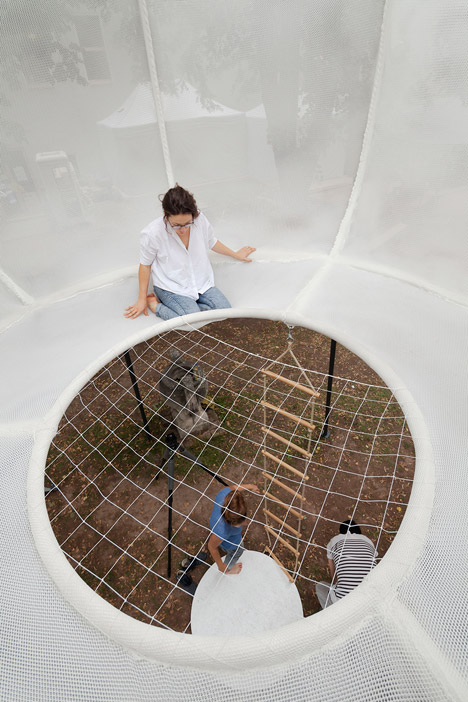
A tubular steel framework, designed to be easily assembled and disassembled, was wrapped in a white elastic spacer fabric – a breathable polyester material with perforations made by German textile manufacturer 3DEA – that reacted to the movements of people inside.
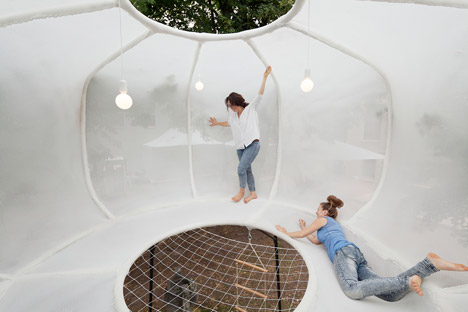
"With a simple and regular shape, the interaction of the piece with the user involves a variation in its form thanks to the elasticity of the fabric covering the structure," said the designers.
"It is elastic, the wind and rain can come through and it's translucent," Iranzo added.
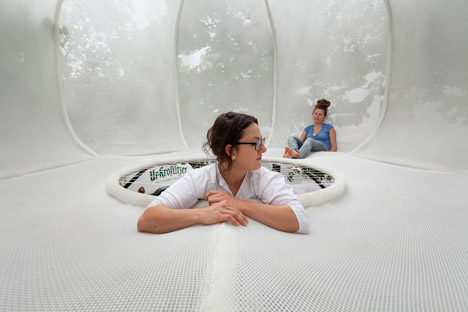
A rope ladder with wooden rungs ascended from a white circular platform through a round opening in the floor of the bulbous structure.
This was partially covered by a section of white net that allowed visitors to lie across the entrance like they would in a hammock.
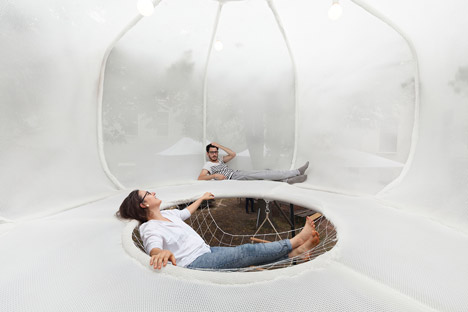
"Inside the cloud, the body seems to gravitate with a feeling of lightness, it is the place where calm reigns," said the designers.
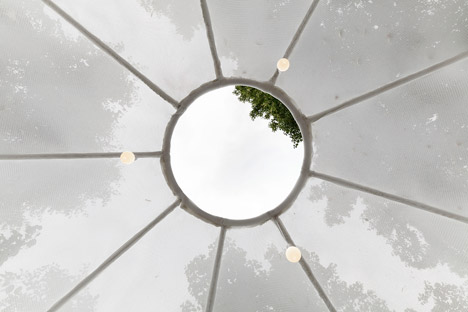
At night, a series of unshaded bulb lights hung from a metal hoop surrounding the ceiling emitted a gentle glow.
"Through the fabric you see only the shadows of what is outside and sounds aren't clear enough to perceive their origin," they said. "People slept, relaxed and enjoyed their time in Cumulus."
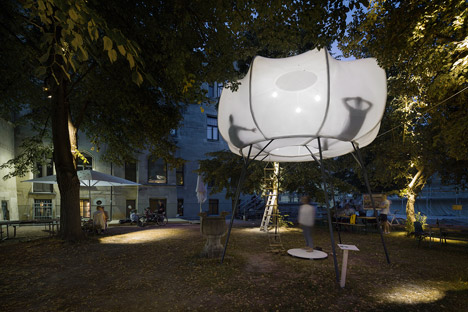
Cumulus was installed in the university campus during the graduation show in July 2014. The designers are now looking for opportunities to install the work at festivals, museums and galleries, and are exploring the possibilities of using the construction as a 360-degree projection screen.
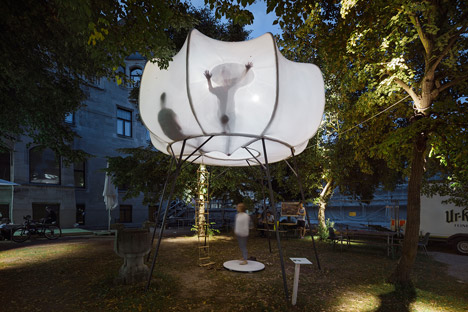
Photography is by Thomas Lewandovski.